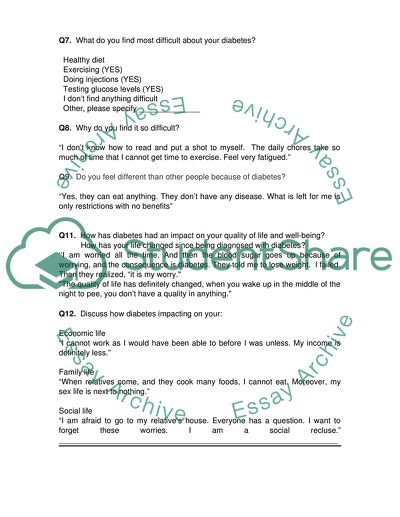Cite this document
(“Interview Questionnaire 2010 on Diabetes Experience Research Paper”, n.d.)
Interview Questionnaire 2010 on Diabetes Experience Research Paper. Retrieved from https://studentshare.org/health-sciences-medicine/1741532-questionaire-on-diabetes-research
Interview Questionnaire 2010 on Diabetes Experience Research Paper. Retrieved from https://studentshare.org/health-sciences-medicine/1741532-questionaire-on-diabetes-research
(Interview Questionnaire 2010 on Diabetes Experience Research Paper)
Interview Questionnaire 2010 on Diabetes Experience Research Paper. https://studentshare.org/health-sciences-medicine/1741532-questionaire-on-diabetes-research.
Interview Questionnaire 2010 on Diabetes Experience Research Paper. https://studentshare.org/health-sciences-medicine/1741532-questionaire-on-diabetes-research.
“Interview Questionnaire 2010 on Diabetes Experience Research Paper”, n.d. https://studentshare.org/health-sciences-medicine/1741532-questionaire-on-diabetes-research.


